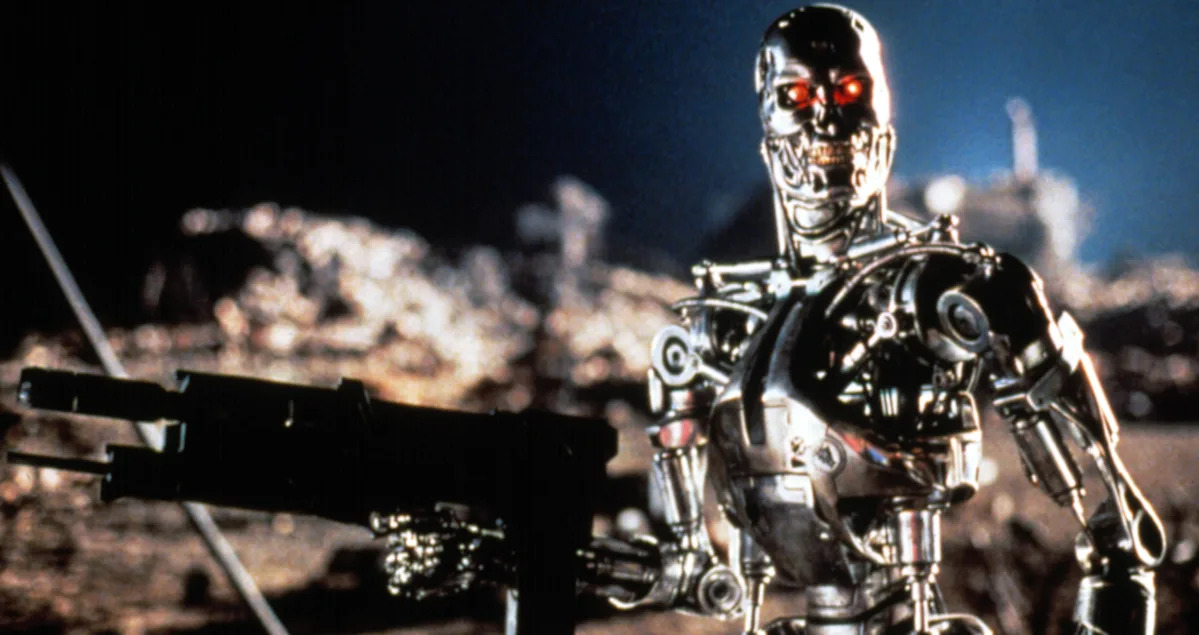A majority of Americans (53%) now think artificial intelligence is likely to “destroy humanity” someday, according to a new Yahoo/YouGov poll.
The survey of 1,770 U.S. adults was conducted from Oct. 23 to 27, a period bookended by the arrival of OpenAI’s new artificial-intelligence-powered web browser, ChatGPT Atlas, and the revelation that Nvidia, the AI chip-making giant, had become the first publicly traded company to top $5 trillion in market value.
Yet real people seem much more pessimistic about AI — and its potential impact on their lives — than Silicon Valley and Wall Street.
To be sure, an overwhelming majority of Americans who have used AI chatbots (85%) say they have — so far — found them to be at least somewhat helpful, including a third (33%) who say they have found them to be very helpful (with relatively little difference by age). Just 15% of users say their own experience with AI chatbots has been mostly negative; the rest say their experience has been either mostly positive (40%) or equally positive and negative (41%).
It’s what happens next that Americans are worried about.
Despite some satisfactory early impressions, skepticism about the upside of AI is already creeping into public opinion. One issue is the rapid online proliferation of AI-generated content. Most Americans (55%) now say they “see online content that was produced by artificial intelligence rather than by people” either every day (25%) or frequently (30%); even more (59%) complain that they see AI-generated content “too often.” Just 15% of Americans say they see it “about the right amount” (15%) or “not enough” (2%).
Respondents recognize the risk here: distinguishing reality from AI-generated unreality. A majority of Americans (56%) confess to having “encountered something made by artificial intelligence (AI) that you initially thought was real” — and while roughly the same number (54%) say they’re at least somewhat confident that they can determine whether “online content was produced by artificial intelligence or by people,” a mere 21% of Americans are similarly confident that “other people” can tell the difference.
Nearly two-thirds of Americans (65%) say they are not confident in others’ ability to differentiate human content from AI content.
Perhaps as a result, just 16% of Americans say they feel like AI chatbots make them smarter, while far more say “smarter in some ways, dumber in others” (30%); dumber (18%); or that they have no effect (30%). Likewise, just 17% of Americans think AI will have a mostly positive effect on their own lives, while far more say AI’s effect will be mostly negative (32%) or equally positive and negative (34%).
But what about AI’s impact on humanity as a whole?
According to the poll, a mere 10% of Americans think AI’s impact on humanity will turn out to be mostly positive; a plurality (47%) expect it to be mostly negative. To find out why, Yahoo and YouGov asked Americans to read four “predictions about AI” and say “how likely” it is that each “will come true at some point in the future.”
Here’s how they responded:
61% of Americans say it’s somewhat or very likely that “AI will continue to improve, but it will never surpass human intelligence.”
64% of Americans say it’s somewhat or very likely that “AI will be able to perform any intellectual task a human can.”
60% of Americans say it’s somewhat or very likely that “AI will become so intellectually advanced that it will help us solve complex problems like curing cancer and stopping climate change.”
63% of Americans say it’s somewhat or very likely that “AI will become so intellectually advanced that humans won’t be able to control it anymore.”
And 53% of Americans say it’s somewhat or very likely that “AI will destroy humanity.”
In other words, roughly six in 10 Americans believe that AI will someday exceed human capacity — and human control. And almost all of them think that could spell doom for the human race.
Notably, the number of Americans who think it’s “very likely” that AI will eventually use its powers to cure cancer or stop climate change (15%) is smaller than the number who think that AI is very likely to destroy humanity (20%).
__________________
The Yahoo survey was conducted by YouGov using a nationally representative sample of 1,770 U.S. adults interviewed online from Oct. 23 to Oct. 27, 2025. The sample was weighted according to gender, age, race, education, 2024 election turnout and presidential vote, party identification and current voter registration status. Demographic weighting targets come from the 2019 American Community Survey. Party identification is weighted to the estimated distribution at the time of the election (31% Democratic, 32% Republican). Respondents were selected from YouGov’s opt-in panel to be representative of all U.S. adults. The margin of error is approximately 3.1%.

